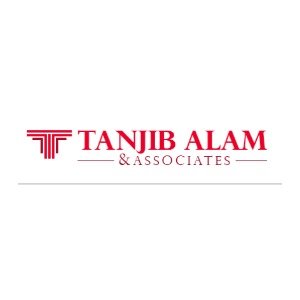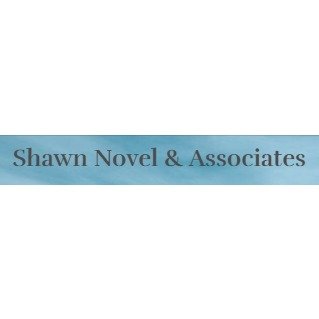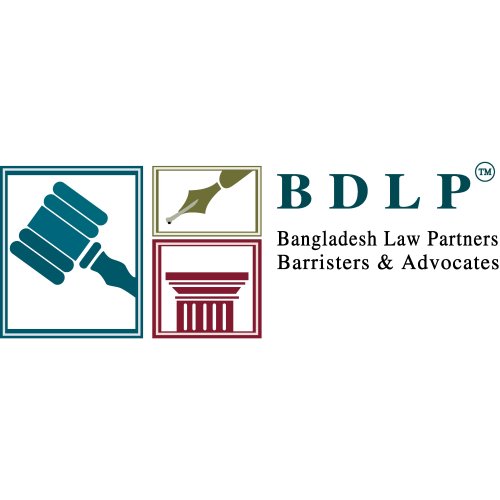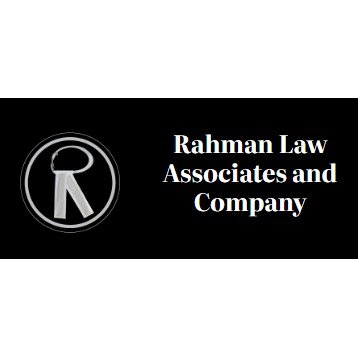Best Sanctions & Export Controls Lawyers in Bangladesh
Share your needs with us, get contacted by law firms.
Free. Takes 2 min.
Or refine your search by selecting a city:
List of the best lawyers in Bangladesh
About Sanctions & Export Controls Law in Bangladesh
Sanctions & Export Controls law in Bangladesh governs the movement of goods, services, technology, and funds across its borders, as well as compliance with international legal obligations. These laws are designed to protect national security, fulfill international commitments (such as United Nations sanctions), and promote economic and political objectives. Bangladeshi authorities maintain a regulatory framework that restricts or prohibits certain exports, imports, and financial transactions with specific countries, individuals, or entities in accordance with both national policies and international agreements.
Why You May Need a Lawyer
Navigating the complexities of Sanctions & Export Controls can be challenging for individuals and businesses alike. You may need legal advice in the following situations:
- Engaging in international trade involving restricted or dual-use goods
- Exporting technology or software with potential military or dual-use applications
- Conducting transactions with foreign companies or individuals linked to sanctioned countries
- Responding to inquiries or investigations by Bangladeshi enforcement authorities
- Facing the risk of penalties or enforcement actions for alleged violations of export control laws
- Seeking to understand obligations under new or updated sanctions regimes or policies
- Drafting or reviewing compliance programs within your organization
- Disputing customs seizures or detentions of goods at the border
- Dealing with the freezing or blocking of funds due to sanctions
A qualified lawyer can help interpret the laws, evaluate risks, prepare the necessary documentation, and represent you before the relevant authorities.
Local Laws Overview
Several Bangladeshi laws, rules, and governmental bodies play a vital role in Sanctions & Export Controls regulation. The primary legal instruments include the Export Control Act 1950, Import and Export Control Order, relevant sections of the Special Powers Act 1974, and rules under the Customs Act 1969. The Bangladesh Bank, the Ministry of Commerce, the National Board of Revenue, and the relevant security agencies all regulate and supervise compliance.
Key aspects include:
- Comprehensive lists of banned or restricted items for export and import
- Special licensing requirements for controlled goods, such as chemicals, arms, dual-use technologies, and sensitive information
- Prohibitions on trade or transactions with countries or entities subject to United Nations or government-imposed sanctions
- Financial sector regulations to prevent money laundering and funding of terrorism as part of sanctions enforcement
- Penalties for violations such as fines, imprisonment, seizure or forfeiture of goods, and disqualification from trading privileges
- Requirements for record-keeping and reporting by individuals and businesses engaged in international trade
Bangladesh regularly updates lists of controlled items and monitored countries to reflect developments in international relations and obligations.
Frequently Asked Questions
What are export controls?
Export controls are legal measures that regulate the export of specific goods, technology, or services to other countries, mainly for reasons of national security, foreign policy, or compliance with international commitments.
Who administers export controls in Bangladesh?
Export controls are mainly administered by the Ministry of Commerce, the Bangladesh Bank, and the National Board of Revenue, each playing distinct roles concerning licensing, financial supervision, and customs enforcement.
Which goods require special export permits?
Goods that typically require special export permits include arms and munitions, chemicals, pharmaceuticals, sensitive electronics, and dual-use items, such as technology with both civilian and military applications.
Are there penalties for violating export control rules?
Yes, penalties for violations can include fines, imprisonment, seizure or forfeiture of goods, and loss of trading licenses, depending on the severity and nature of the violation.
What are sanctions, and how do they affect businesses?
Sanctions are government-imposed measures that restrict or prohibit transactions with specific countries, entities, or individuals. These can impact business by restricting exports, imports, investments, and financial dealings with listed parties.
How can I find out if a country or company is sanctioned?
Official lists of sanctioned countries, entities, or persons are published by the Bangladesh government and are often based on United Nations Security Council resolutions or other international obligations.
What should I do if my goods are detained by customs?
If your goods are detained at the border, promptly consult a lawyer experienced in customs and export control matters. You may need to provide additional documentation, demonstrate compliance, or appeal a seizure decision.
Do export control laws apply to services and technology transfers?
Yes, Bangladeshi export control laws can apply to technology transfers, technical data, and certain services, especially those involving sensitive or dual-use technologies.
Is compliance with foreign sanctions, such as US or EU sanctions, required in Bangladesh?
Primarily, businesses in Bangladesh must comply with domestic sanctions and UN-imposed sanctions adopted by the government. However, trading with overseas partners may require awareness of foreign sanctions that could affect business relationships.
How can a lawyer help with sanctions and export controls?
A lawyer can help interpret relevant laws and regulations, design compliance programs, obtain necessary permits and licenses, defend against enforcement actions, and advise on complex cross-border transactions.
Additional Resources
For further information or assistance, consider the following resources:
- Ministry of Commerce: Issues guidelines, controlled goods lists, and export permits.
- Bangladesh Bank: Regulates cross-border financial transactions and implements financial sanctions.
- National Board of Revenue (NBR): Oversees customs declarations and compliance at ports and borders.
- Export Promotion Bureau (EPB): Supports exporters and clarifies regulatory requirements.
- Bangladesh Export Processing Zones Authority (BEPZA): Provides guidance for businesses in export processing zones.
- UN Security Council Sanctions Committees: Official reference for UN-mandated sanctions relevant to Bangladesh.
- Chamber of Commerce and Industry: Offers support and advice to exporters on trade regulations.
Next Steps
If you require legal assistance regarding Sanctions & Export Controls in Bangladesh, consider the following steps:
- Identify the specific issue or transaction that may be affected by export controls or sanctions.
- Gather all relevant details, such as goods description, destination country, involved parties, and documentation.
- Consult an experienced lawyer or legal consultant familiar with Bangladeshi and international trade law.
- Discuss your objectives and share your documents to receive tailored legal advice.
- Follow your lawyer’s instructions to apply for permits, prepare compliance programs, or respond to government inquiries.
- Stay updated on legal and policy developments by monitoring official resources and advisories.
Taking swift and informed legal action can help minimize risks, ensure compliance, and maintain smooth international trade operations.
Lawzana helps you find the best lawyers and law firms in Bangladesh through a curated and pre-screened list of qualified legal professionals. Our platform offers rankings and detailed profiles of attorneys and law firms, allowing you to compare based on practice areas, including Sanctions & Export Controls, experience, and client feedback.
Each profile includes a description of the firm's areas of practice, client reviews, team members and partners, year of establishment, spoken languages, office locations, contact information, social media presence, and any published articles or resources. Most firms on our platform speak English and are experienced in both local and international legal matters.
Get a quote from top-rated law firms in Bangladesh — quickly, securely, and without unnecessary hassle.
Disclaimer:
The information provided on this page is for general informational purposes only and does not constitute legal advice. While we strive to ensure the accuracy and relevance of the content, legal information may change over time, and interpretations of the law can vary. You should always consult with a qualified legal professional for advice specific to your situation.
We disclaim all liability for actions taken or not taken based on the content of this page. If you believe any information is incorrect or outdated, please contact us, and we will review and update it where appropriate.
Browse sanctions & export controls law firms by city in Bangladesh
Refine your search by selecting a city.

















